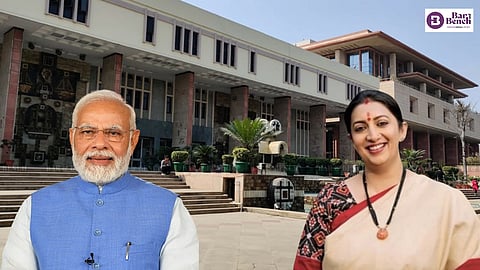The Delhi High Court on Monday ruled that there is no implicit public interest in making public the information related to the educational qualifications of Prime Minister Narendra Modi and former Union Minister Smriti Irani [University of Delhi v Neeraj & Anr].

